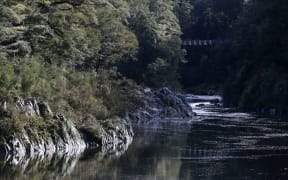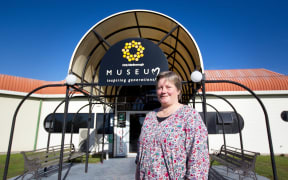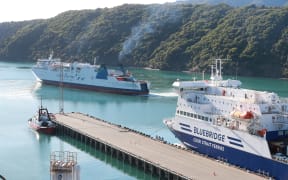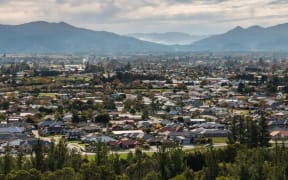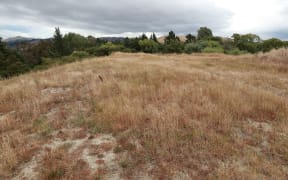By Maia Hart.
Whisper the words "post-pandemic". Because while we're not there yet, some among us are planning for that special day.
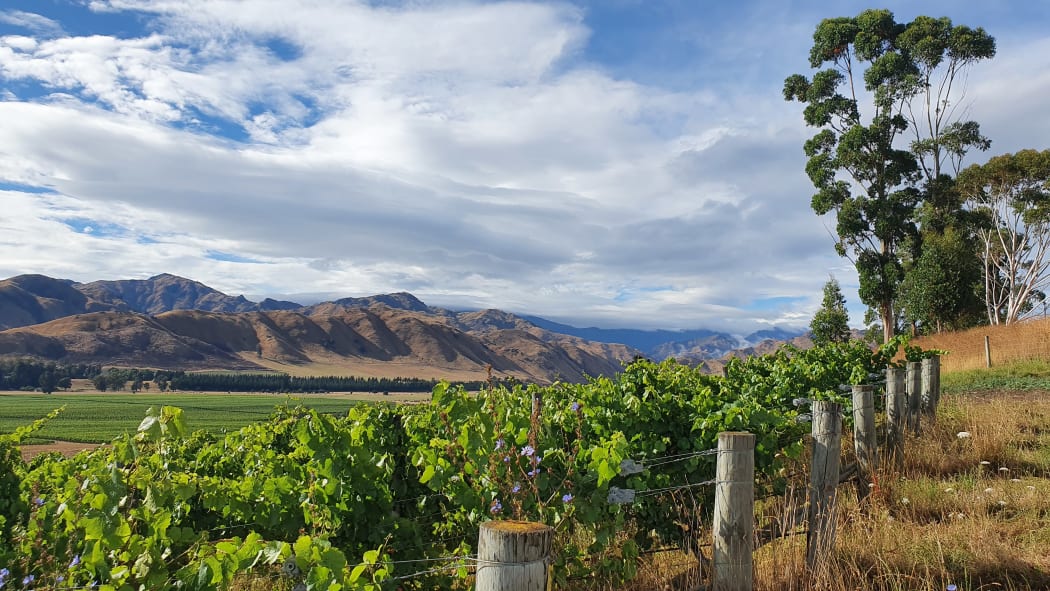
Destination Marlborough - and other tourism bodies - are pulling together their Destination Management Plan Photo: RNZ/Sally Round
And with the borders to Aotearoa slowly opening up, maybe we are closer than we think.
It is no secret, for the tourism industry, the Covid-19 pandemic has been almost catastrophic, but has it also provided an opportunity? An opportunity to "reset".
That's the question Destination Marlborough - and other tourism bodies - are asking, as they pull together their Destination Management Plan, or DMP.
Destination Marlborough general manager Jacqui Lloyd said every region had been asked to pull together a DMP in order to understand the future of its region's tourism.
"We're not saying as Destination Marlborough we are going to go out and build a hotel, or start a new product," Lloyd said.
"It's like being a conductor in an orchestra. All of these amazing things are happening in isolation, so how can we be the one to make it come together and be a destination for the community."

The plan looked at all corners of Marlborough, from the south, to Blenheim, to Havelock and the Marlborough Sounds, Lloyd said.
"We've got an opportunity now, for when visitation comes back, to help manage how people come through our communities and be a benefit to the community rather than a hindrance."
As part of the DMP, Lloyd said they would like to hear from the community directly about what they wanted for Marlborough's tourism.
"It's an all-age request," Lloyd said. "What does everyone want for Marlborough in the future, we know there are gaps in our offerings, so how can we help facilitate these things to be better in the future?"
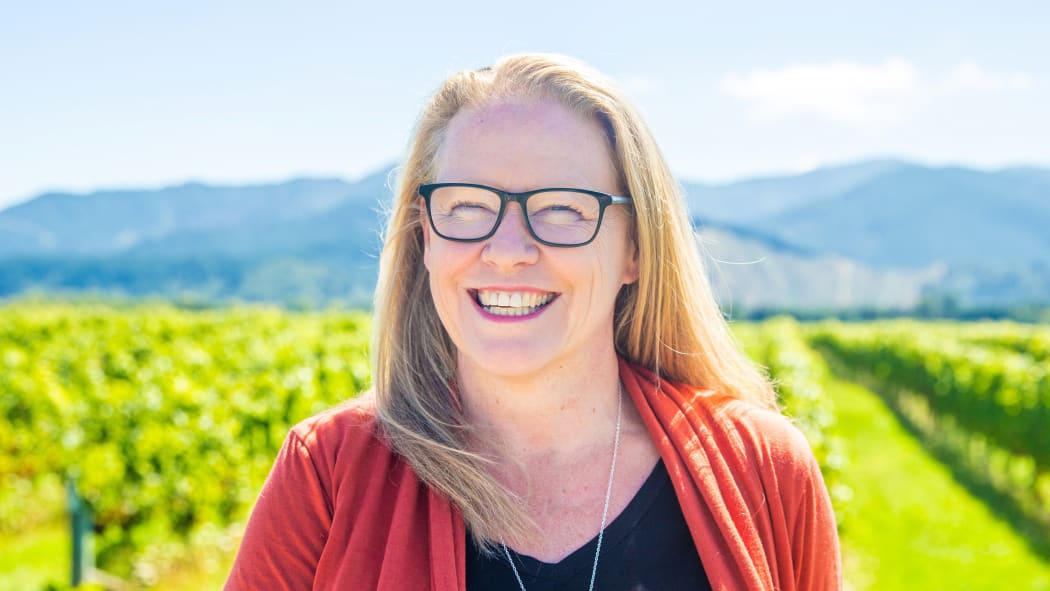
Destination Marlborough general manager Jacqui Lloyd. Photo: BRYA INGRAM
Destination Marlborough destination management project manager Anton Wilke said New Zealand experienced huge growth in tourism before Covid-19, so now there was an opportunity to understand what that looked like post-pandemic.
"From a Destination Marlborough perspective, what's the best plan forward?" Wilke said.
"We're also working closely with DOC (the Department of Conservation), and we're trying to build connections with the local iwi.
"Essentially where we've come to is that the environment sits at the heart of this plan, and that not just visitation and tourism, but all the other industry pillars like wine and forestry, and marine farming are all based around the success of the environment."
The final DMP was something they were adamant would not sit on a shelf, but would be looked back on regularly.
"We've identified a number of strategies and activations that we want to make sure we achieve; what does the cruise market look like when it returns, what does wine tourism look like, how are we dealing with wider cycling and visitation, what's happening with the likes of the Whale Trail, how can we work closer with iwi to develop their signage and fairer representation around their history?"
Marlborough Mayor John Leggett said the DMP was a "real opportunity" to step back and hit the "reset button".
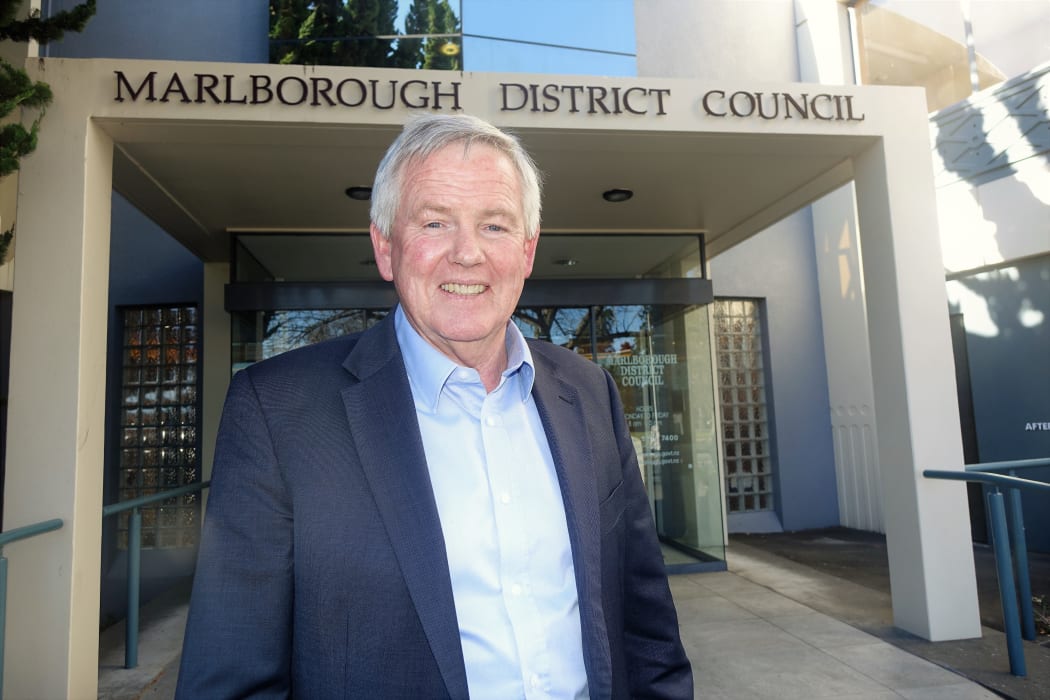
Marlborough Mayor John Leggett. Photo: RNZ / Tracy Neal
"We [council] were really supportive of the initial approach [to the DMP] and the idea of going out with a survey," Leggett said.
"It focuses people on the question around what can Marlborough look like. What do you think we can do to improve the visitor experience?"
Te Rūnanga a Rangitāne o Wairau general manager Corey Hebberd said tourism provided an opportunity for visitors, both Kiwis and those from overseas, to experience "our manaakitanga (hospitality), our beautiful country and our unique tourism offering".
"The focus needs to be on value over volume, with a focus on high-value visitors that endure through both our off-peak and shoulder seasons," Hebberd said.
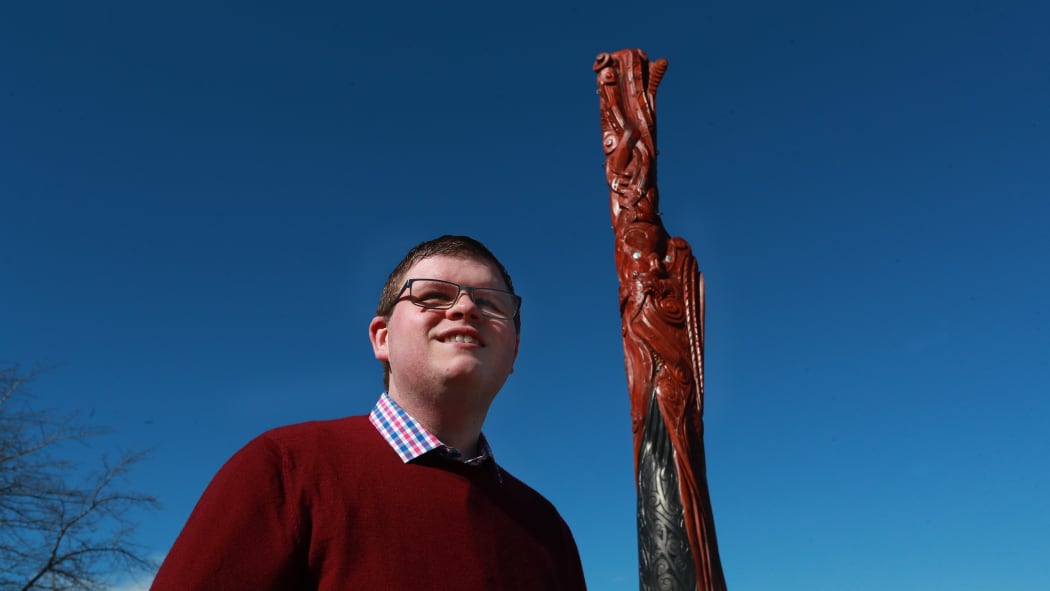
Corey Hebberd. Photo: Scott Hammond / Stuff / Supplied
An opportunity existed to strengthen and grow relationships with Māori, to embed tikanga Māori in our tourism strategy, and to improve tourism outcomes for our visitors and our economy alike, he said.
Part of that, Hebberd said, was enhancing the Wairau Bar; the birthplace of the nation.
"It was the tūrangawaewae for the first people of Aotearoa, as part of organised migration. There is a rich history to be told, and much to be learnt," Hebberd said.
Guardians of the Sounds chairman Tim Healey "welcomed" the idea of a conversation with Destination Marlborough.
"Let's talk about it [tourism], and bring any issues out into the open," he said.
He thought it would be worth having "proper" assessments on the impacts of tourism on Picton.
"Risk assessments that have never been done, and then we can go forward," Healey said.
"Picton is a beautiful place, and people would like to keep their lifestyle as well. I think it's about 40 per cent of people make their money out of tourism, or used to, but that leaves 60 per cent that don't.
"So that 60 percent really should have a say about the future."
Slip Inn Store owner Cieran Thomas thought most people thought of wine and the Sounds when they thought of Marlborough.
"And why would they think anything else? ... That has brought tourism in here, but it's very focused on that ...
"If people come to the Airshow, you need to get them to enjoy Marlborough for what it's got, and encourage them to visit the restaurants and other businesses," Thomas said.
Despite having a business in Havelock, Thomas thought it would be hard to draw people to Havelock for long stints of time, as there was not the infrastructure to properly support it.
"It's all good and well saying Havelock is amazing, come and visit, but if we don't have the ability to accommodate people once they get here."
Havelock Gallery volunteer Trish Hope, who lived in Blenheim, said being known as the wine region was a great thing - but not everybody was into wine.
"Some people bypass Blenheim to go straight down to Christchurch, or to [the] ferry, so I think we need to find a way to show the region. We need to encourage people to stay for longer, so they can see more of the region.
"I've lived here all my life, and I love it all. Here you have everything, people should know that."
Local Democracy Reporting is Public Interest Journalism funded through NZ On Air
